David Stairs
I want to be upfront about this: I’m not giving any money to Haitian relief. That sounds mean-spirited, I know. But truth be told, on the heels of my Oxfam donation following the tsunami, I was already beginning to feel relief fatigue. Although they dispute this statement, Architecture for Humanity, an organization I’ve promoted for years, has evolved from a design wiki into an emergency relief agency. “And why not?” you’ll ask. It is an incredibly lucrative fund-raising strategy because busy but empathic people will open their purses for disaster scenarios. And never count the professional design organizations out. ICOGRADA’s thudding UDD, even funnier as Uniting Designers in Disaster, proves the extent to which designers are willing to go to make themselves look foolish.
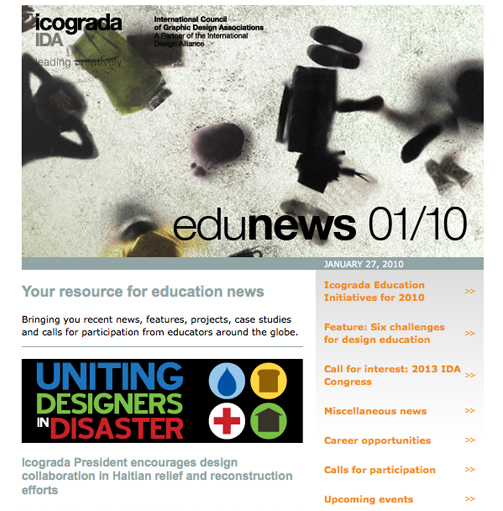
In the modern social sense, we have a collective responsibility to our fellow man. But this isn’t grounded in any form of biological survival strategy; our genes are inherently selfish. Hence, an intellectual conflict of interest. Humanitarianism isn’t even an aspect of natural selection, but a moral construct developed by a class of hieratic middlemen. The idea of getting children to break open their piggy banks to feed the frenzy before they even understand what it is all about is offensive to me. Not that children don’t need to be shown the importance of charity; human suffering is extraordinarily complex and compelling. It’s just that there are way too many people benefiting from this particular series of disasters. So, what would jog my apparently jaded value system? Foresight, for one. Last week I was in Terre Haute, perhaps best known for the federal penitentiary there. I attended a discussion following the opening of small architecture/BIG LANDSCAPE curated by Wes Janz. I had to drive through whiteout to get there, but many came from farther away. Subtopia founder Brian Finoki made it in from San Francisco, while Scott Shall and company brought their International Design Clinic show entry all the way from Philly. Maria Vera from SIU Carbondale and her collaborator, Giulia Fiocca, who came from Rome, Italy also set up a project.

Swope Museum (Image by Joshua Coggeshall)
Anyone who has been reading this blog has seen my many references to Janz’ onesmallproject. The Swope exhibition is osp in 3D, with ideas aplenty for sheltering street folk, the impoverished, and the disaster ridden. The beauty of those, like Wes, who think about solutions to the housing problems of three fifths of the world’s people in advance is that when disaster strikes they don’t have a knee-jerk response. Disasters will continue to happen, of course, and an increasingly concentrated world media machine will continue to profit from promoting relief hysteria. Fortunately, some insightful journalists see things for what they really are. Nancy Gibbs reports in this week’s Time magazine about emergency relief volunteers who leave for disaster areas so poorly prepared that they wind up needing relief assistance themselves.
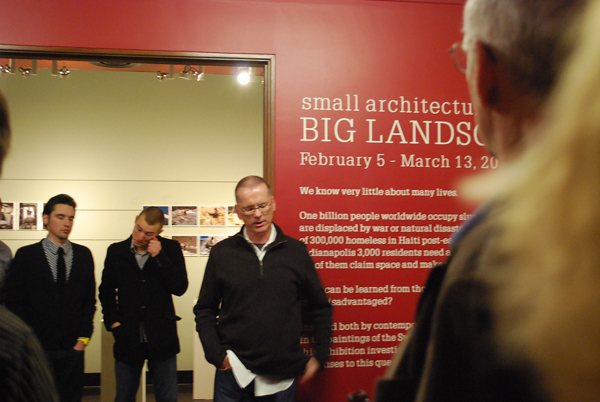
Wes Janz at the opening of sa/BL (Image by Joshua Coggeshall)
Unfortunately, when you look at Haiti you see a country that has been overlooked for two centuries. It is a nation formed out of a slave revolt, neglected by the world’s powers out of racist chagrin, a people left to fail because of their upstart place in history. There are other, similar nations: Liberia, for example, or the Congo. No one can say that a little attention to Haiti over the past fifty years would have prevented the current disaster; earthquakes don’t answer to political good intentions. But a diplomatic and economic approach that treated the Haitians with dignity rather than making them the Western hemisphere’s sweatshop labor pool might have ameliorated the coming chaos.
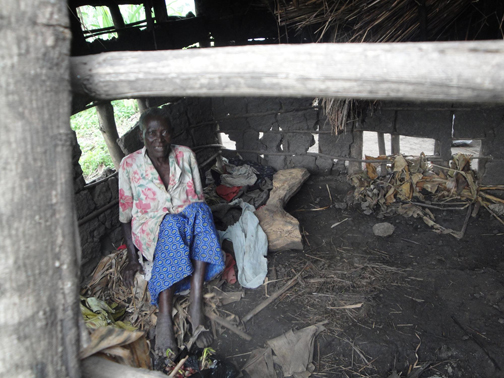
Aida Namono’s current resting place.
While the world is largely distracted by the activity on Hispaniola, the dirty tricks continue unabated in Zimbabwe, Pakistan, Yemen, Afghanistan and elsewhere. I’ve decided to direct my modest assistance to Aida Namono, a woman in Mbale, Uganda recovering from snakebite while caring for her orphaned grandchildren. Aida needs a better house. I figure $100 diverted from Haiti now might avert the need for $1000 later, when disaster hits eastern Uganda. And if it never does hit, god willing, maybe a few people in an out-of-the-way place will have learned that they don’t need to die in droves before the world takes notice of them. If you are interested in helping Aida, contact Samuel Watulatsu, director of Foundation for Development of Needy Communities at: fdncuganda@yahoo.com
David Stairs is editor of Design-Altruism-Project

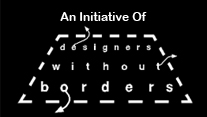




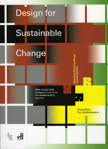
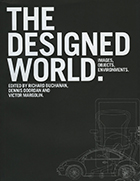
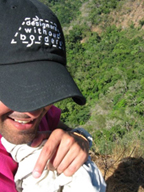


May 14, 2010 at 2:56 pm
Eric,
Altruism is where you find it.
David
May 13, 2010 at 10:08 pm
David, is this a question of altruism? Is it even possible?
February 23, 2010 at 7:55 pm
I remember my grandpa always telling me to make sure that I always try and prepare for that bump in the road. Have we as a nation forgot about the future bumps in the road? Question – How to spend $223 Million: Bridge to nowhere or fund ideas for future disaster relief efforts? Ask your congressman what he should spend our tax money on. Should we develop new ideas to new/old/future problems or fund a mass travel rail system that solves little for the mass majority? The big wheel still needs lots of oil. Change our thought process and maybe we’ll change the future, for the better. Good article. I gave my Haiti money to the guy on the corner with a sign asking for food. I tend to help those that I can shake hands with, just like my grandpa taught me.
Haiti + Technology = One life saved (waiting for the Apple iPhone commercial)
http://tinyurl.com/ye3yw65
February 17, 2010 at 9:33 am
Ahh yes, media sympathy bandwagons. The best way to ensure, through massive diversions of public attention, that the trickle of support to any other humanitarian cause will dry up and be reappropriated to one gigantic catch-all pit of monetary bureaucracy. However, in this age, surprise disaster relief parties are the most effective weapon we have against those nagging, self-imposed consumer guilt-trips. In fact, you can participate in guilt relief from your very cubicle. Just text to 90999 and feel your woes melt away!
http://www.slate.com/id/2112485/